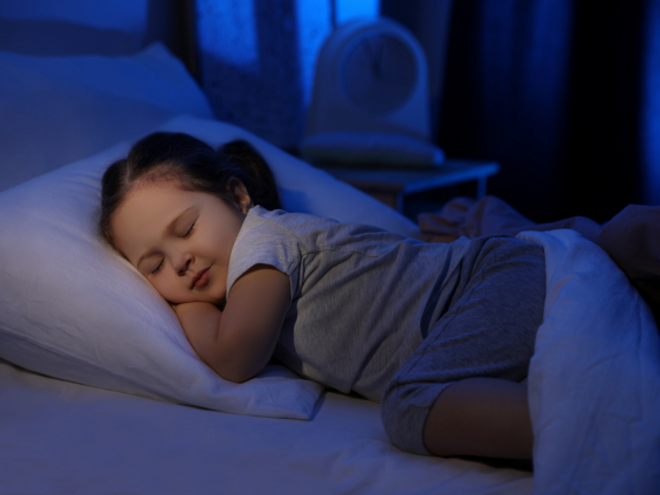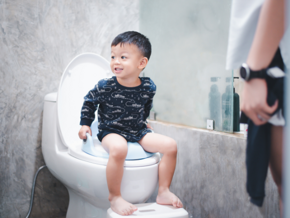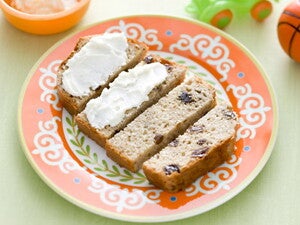
Understanding and Managing Bedwetting in Toddlers
Bedwetting affects many children and is an uncomfortable situation for all concerned. Discover effective strategies to help your little one overcome bedwetting and achieve dry nights, giving you both a peaceful night’s sleep.
What is bedwetting
Bedwetting, medically termed ‘nocturnal enuresis’, is a fairly common concern affecting children under the age of 6 years. It occurs when a child involuntarily urinates during sleep, even after achieving typical bladder control age. Many misconceptions surround bedwetting, causing unnecessary stress for both children and parents. It's important to understand the reason for bedwetting is neither the fault of the child nor the parent. It often stems from factors such as small bladder capacity, delayed nervous system maturation, or an inability to recognise bladder signals during sleep. By understanding the causes and management of bedwetting, you can better support your child through this phase.
Primary and secondary bedwetting
There are two main types of bedwetting. Primary bedwetting is when your child wets the bed quite regularly and rarely has a period of more than a few months where they don’t wet the bed. Secondary bedwetting refers to when your child resumes bedwetting after a relatively long dry period of over 6 months.
Regardless of the type of bedwetting, this condition is common and often a normal part of your child's development and they will most likely outgrow it by the time they start school. With appropriate strategies and support, bedwetting is manageable and hopefully only short term. If you are concerned, consulting a healthcare professional can provide valuable guidance and assistance.
Reasons for bedwetting
Bedwetting has various contributing factors, including genetics, physiological reasons, psychological triggers, or medical conditions.
- Genetics play a significant role; children with parents who experienced bedwetting are more likely to face the same issue. While not always the case, genetics can influence bladder control.
- Physiological factors include bladder function and capacity, which varies among individuals. For some toddlers, the bedwetting may be due to starting toilet training too early, when the signals they need to recognise that ‘feeling of needing to go to the toilet’ are not developed yet. Some children may have smaller bladders, or make a lot of urine overnight, making it difficult to hold the urine in all night. Sleep patterns also impact bedwetting, as some children enter a very deep sleep and struggle to wake up to use the bathroom. Constipation can also be a cause of bedwetting.
- Psychological triggers, such as stress, anxiety, and emotional disturbances, can exacerbate bedwetting. Changes in routine, like starting school or experiencing trauma, can also contribute.
- Some medical conditions may also be the reason for bedwetting and can include diabetes, a urinary tract infection, hormonal imbalances, and nerve or muscle problems.
Managing bedwetting at home
Managing bedwetting at home involves creating a supportive environment, implementing behavioural strategies, and making lifestyle and dietary adjustments. Reassure your child that bedwetting is common, and they are not alone. Encourage open communication about their feelings and concerns. Avoid punishment or shame, as this can harm their self-esteem.
Some tips to manage bedwetting at home:
- Determine whether your little one is ready for toilet training. You may need to delay ditching the night time nappy until they’re a bit older.
- Establish a consistent bedtime routine with regular bathroom visits before sleep.
- Limit evening fluid intake, including milk.
- Ensure easy toilet access during the night.
- Encourage bathroom breaks during the night or wake your child at a set time to use the toilet.
- Use night lights on the path to the toilet. This will give your child confidence to go to the toilet independently at night if they need to.
- Incorporate bladder-strengthening exercises, like pelvic floor exercises, into daily routines.
- Use a waterproof mattress protector to minimise the discomfort and clean up if they do have an accident.
- Bedwetting alarms may help by waking your child when they start to wet the bed. These alarms detect moisture and sound an alarm to wake your child, helping them learn to wake before wetting the bed.
How to emotionally support your child through bedwetting
Managing bedwetting takes time and patience. Providing unconditional love and emotional support is crucial in helping your child cope. Open communication with understanding, patience, and reassurance will help boost their self-esteem and reduce feelings of embarrassment or shame. Rewarding dry nights with praise or small incentives may be an option, and always avoid negative reactions to bedwetting incidents.
Communicate with other caregivers and educators to create a supportive environment for your child when they’re not at home. Share information about your child's bedwetting to ensure everyone involved understands the situation and can provide necessary assistance, preventing misunderstandings and stress.
Search online for resources and support groups that are available to help families dealing with bedwetting. These provide valuable information, tips, and strategies, as well as a sense of community and understanding. Online forums, local support groups, and dedicated websites offer guidance and support from other parents with similar experiences.
When to seek medical advice for bedwetting
The treatment of bedwetting may be something you need medical intervention for and consulting a healthcare professional may be necessary in certain cases. They can not only help diagnose any underlying causes, but they can provide treatment options best suited to your child, including medication if necessary.
Here are some signs indicating the need for medical consultation:
- Age: If your child is older than 6 years and still wets the bed, consulting a healthcare professional is advisable.
- Frequency: Consistent bedwetting more than twice a week may indicate an underlying issue requiring medical attention.
- Emotional distress: If bedwetting causes emotional distress, such as embarrassment or shame, seek advice on how to help them cope better.
A medical consultation may involve:
- Medical history review: Discuss bedwetting patterns, symptoms, and family history with the healthcare professional.
- Physical examination: Assess overall health and rule out physical abnormalities.
- Urine analysis: Check for infection or other urinary problems.
- Additional tests: In some cases, bladder function tests or imaging studies may be recommended.
Seeking medical advice ensures proper diagnosis and a treatment of bedwetting tailored to your child, which can provide you with reassurance.
Overcoming bedwetting
Remember, bedwetting is a common issue that many children eventually outgrow. With the right coping strategies, emotional support, and access to helpful resources, your family can navigate this phase with confidence and understanding.
Frequently asked questions about bedwetting
How stop bedwetting?
To help stop bedwetting, try establishing a consistent bedtime routine, limit fluids before bed, and encourage regular toilet trips leading up to bed time. Use a waterproof mattress protector and consider bedwetting alarms or reward systems. Be patient, provide support, and consult with a healthcare professional if bedwetting persists or causes significant distress.
How to dry a mattress after bedwetting?
To dry a mattress after bedwetting, start by removing any bedding and blotting the wet area with towels. Sprinkle baking soda to absorb moisture and odours, then vacuum it up. Air-dry the mattress in a well-ventilated area or use a fan. Consider using a waterproof mattress protector for future accidents.
What does nocturnal mean
Nocturnal refers to activities or behaviours that occur during the night. In the context of sleep, it refers to individuals who are more active or awake during the night and tend to prefer sleeping more during the day. For example, nocturnal animals are those that are active primarily at night.
How to prevent bedwetting
To help prevent bedwetting, encourage regular toilet trips before bedtime, limit fluid intake in the evening, and establish a consistent bedtime routine. Consider using bedwetting alarms, rewarding dry nights, and providing emotional support. Consulting with a healthcare professional can provide additional guidance and support, especially if your child is older than 6 years, or the bedwetting causes too much emotional stress for your little one.
Sources:
- Health Direct website. Accessed at https://www.healthdirect.gov.au/bedwetting-in-older-children
- Raising Children website. Accessed at https://raisingchildren.net.au/preschoolers/sleep/night-time-problems/bedwetting
- Royal Children’s Hospital website. Accessed at https://www.rch.org.au/kidsinfo/fact_sheets/bedwetting/





